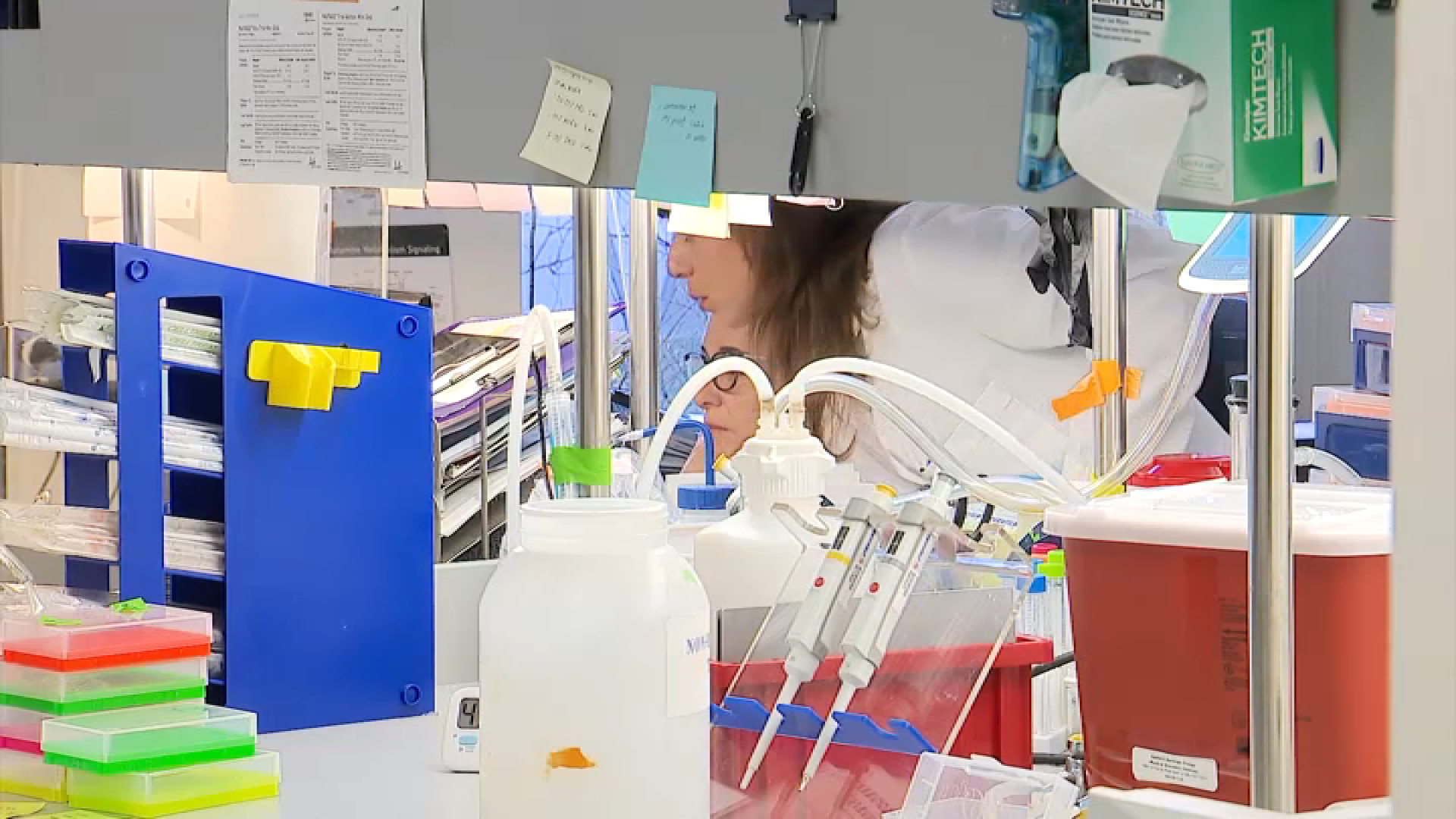Transcripts from three depositions of Donald Trump associated with two Trump University lawsuits were released into the public court record late Wednesday.
Throughout the 651 pages, Trump is asked basic questions ranging from what university he attended, how he spells his name and if he owns a personal computer. The real estate magnate told questioners the shuttered for-profit school was "very important" to him, and said the man running the school called "once in a while" to discuss it and would introduce educators to him.
The depositions are associated with two different lawsuits being heard in San Diego federal court: Cohen v. Trump, a nationwide class action lawsuit, and Low v. Trump (formerly Makaeff v. Trump), a class action in California, Florida and New York. Another lawsuit is based in a New York court.
In the class action lawsuits, Trump University is accused of misleading students with unfulfilled promises of teaching them the secret to being successful in the real estate business. Trump denies the allegations made in the lawsuits. His attorney, Daniel Petrocelli, has said Trump "will defend himself fully."
A trial has been set for November 28 in the Low v. Trump case and Trump has said he will be in court to testify. The court date is weeks after the general election in which Trump is the presumptive Republican nominee for president.
The video depositions of Trump were taken on three different days: September 12, 2012; December 10, 2015 and January 21, 2016. The 2012 deposition is associated with the Low v. Trump case, the other two with the Cohen v. Trump case. The depositions in the Cohen v. Trump case contain some redactions.
In one deposition, Trump says the lawsuits are trying to hurt the Trump brand, which he describes as being “worth a lot of money...I think there was an estimate done of over $3 billion or $3 billion for the value of the brand,” according to the transcripts.
Local
In an email to NBC 7, Lisa Cohen, who represents the attorneys representing the plaintiffs in the lawsuits, said the attorneys do not have a comment on the transcripts or their release into the public record.
Attorneys representing Trump in the case did not return a request for comment.
Among the information in the transcripts:
- Imparting knowledge that can better peoples' lives "is a very important thing to me," Trump says
- He threatens to sue the firm that brought the suit
- Trump says he does not own a personal computer
Who 'Ran the School'
Trump details in the depositions how he remembers the school being run, saying Michael Sexton was in charge of Trump University in 2012.
Sexton reported to him, Trump says, and would call him "once in a while," come up with meetings and introduce professors and educators to Trump. In one section of the transcript, he says Sexton had "limited" experience in buying and selling real estate and could not remember if he had ever run a school before, but described him as capable.
Sexton "ran the school," Trump says in the September deposition, after not being able to answer questions about what students received in return for paying $1,500 for its apprenticeship program and the Gold Elite program.
According to the transcript of the depositions, Trump University was “very important” to Trump.
“If I can impart knowledge to a person or a group of people so they can have better lives, that’s a very important thing to me. I like doing that,” he says.
In another deposition, Trump expresses the same feelings: "I thought it was something that was going to help people. I thought it was something where people learn. They could, they could, for a relatively small amount of money, they could learn something good."
Trump says he attended a Trump University seminar in Florida a couple of times and one or two in New York, according to the transcript. He says he was “very, very satisfied” with what he saw. He adds that he believes students could attend a 90-minute free class, learn techniques and then copy them to get rich.
When asked about the people who taught for Trump University, Trump says, “at a minimum, I’ve seen resumes, I met with instructors, but I also have seen resumes of many of them.”
In one deposition, Trump says the school did not have a business plan: “It wasn’t a big transaction for me. It wasn’t a make-or-break deal. It was just something that if we can educate people into the ways of real estate and finance, that’s a good thing…”
Deposition Questioning as 'Harassment'
The transcript of the September 12 deposition has a contentious tone. In it, Trump says he has testified over 100 times, including in court hearings. At one point during the questioning, the attorneys representing both sides stop the video recording and call the judge to have him intervene and weigh in on questions being asked.
“I honestly look forward to winning this case and suing your law firm for as much as we can sue them for,” Trump tells Rachel Jensen, a representative for the plaintiffs and the person questioning Trump in the deposition. “We will be doing that. We have a 97 percent approval rating. Harvard doesn’t have a 97 percent approval rating. And we will be suing your law firm for as much as we can possibly do. That I can tell you.”
Trump also tells Jensen he will be suing her individually.
Early in the questioning, Jensen says, “just to be clear for today, Mr. Trump, one, I’m not here to harass you. I’m here to ask you questions about the case.”
Trump responds, “it seems like you are, but that’s okay.”
Similar exchanges continue. A couple of questions later, Jensen says, “really nothing personal, and I’m not here to harass you.”
“That’s okay. You asked me to spell my name, so I figured that’s a form of harassment...It’s okay. Nobody has ever done that before,” Trump responds.
Jensen explains it is “just formalities in a deposition.” To that, Trump responds, “All the depositions I’ve taken, no one has ever asked me to spell my complete name.”
Toward the end of the September deposition, Trump asks Jensen to not lick her finger before giving him documents. "It's disgusting," he says.
Discussing Politics, and the Clintons
Trump describes himself as a real estate expert and says, “I can’t imagine anybody being much more of an expert.”
The depositions have several references to politics, including political figures Jeb Bush, Bill and Hillary Clinton and Governors Rick Perry of Texas and George Pataki of New York.
In the most recently recorded deposition, when asked why throughout discovery in the case, the plaintiffs' attorneys have not received any e-mails sent by or received from Trump, he responds, “unlike Hillary Clinton, I’m not a big e-mail fan."
According to the transcript, Trump told one of the plaintiff’s attorneys, “you want to always be friendly with politicians...I needed their support to get projects done.”
In the deposition, Trump says he really didn’t think about it that much when he once said “she (Hillary Clinton) would make a great president or vice president," but does now, “yeah, at the time I might have. I didn’t give it a lot of thought, because I was in business. And as a businessman, I think it was something I never really gave much thought to."
Now, after seeing how she handled herself "she wouldn’t make a very good vice president or president," he says.
Click here to read the complete transcripts.
The documents were released associated with the Low v. Trump case by the plaintiff’s attorneys. “Relevant excerpts” from depositions with Amy H. and Paula Levand, both former Trump University customers, were also released Wednesday. Amy H.’s deposition was taken on July 1, 2015, associated with the Cohen V. Trump case; Levand’s was taken on July 17, 2013, and is associated with the Low V. Trump case, according to court records.
Other documents related to the Trump University lawsuits have been released, sometimes after intervention from outside individuals, including the Washington Post, which argued to have several playbooks entered into the public court record.
Several media organizations, including NBC 7, are asking a judge to make the video of the depositions of Trump part of the public record. A hearing on that issue is set for July 13. UPDATE: At the July hearing Judge Curiel heard from both sides but did not make an immediate decision.
Other information included in the Trump deposition transcripts:
- Trump says he does not own a personal computer: “We have many computers in the corporation, but no, I don’t have a computer."
- When asked if he sent an email to Trump University students with a personal invitation to RSVP in 2006, Trump says he did not but it could be possible that somebody, like Sexton, sent it on his behalf.
- Trump says he does not remember seeing a letter from the New York Department of Education about the use of the word “university.” He said he thinks “there was a negotiation that went on for a period of time and then Mr. Sexton said rather than arguing about it, we’ll change the name. It wasn’t a big deal.”
- Trump says he would "sometimes" review advertisements and testimonials for the University but did not have "too much" involvement in the advertising and marketing for it. Trump also says he approved ads that said, "learn to invest like a billionaire," and mentioned he is "a billionaire, many times over."
- In one depositions in the Cohen v. Trump case, Trump says he has a great memory. A couple of questions later, he is unable to answer several questions including whether or not he knows certain individuals, because he says, "I don't remember. It's so long ago...Too many years."



